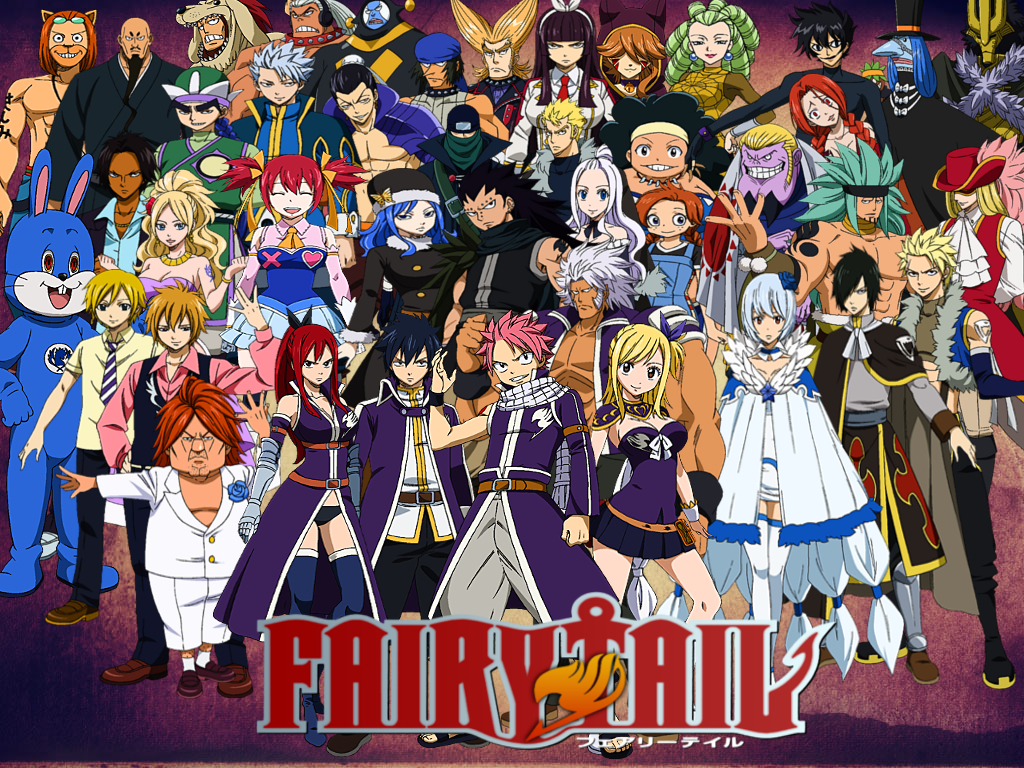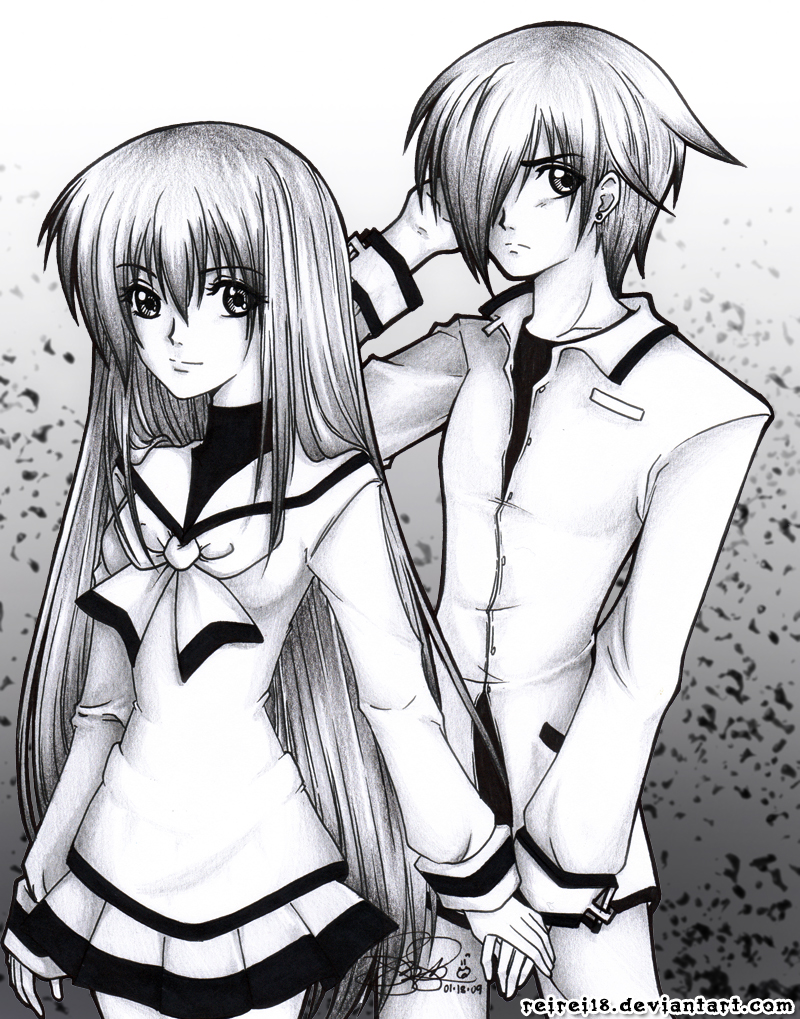Afro Samurai

Afro Samurai (アフロサムライ Afuro Samurai?), also written
AFRO SAMURAI, is a
Japanese seinen dōjinshi manga series written and illustrated by
manga artist Takashi Okazaki. It was originally serialized irregularly in the
avant-garde dōjinshi manga magazine Nou Nou Hau from September 1999 to May 2000. Inspired by Takashi Okazaki's love of
soul and
hip hop music and American media,
Afro Samurai
follows the life of Afro Samurai who witnessed his father (owner of the
No. 1 headband) being killed by a gunslinger, Justice (owner of the No.
2 headband) while he was a child. As an adult, Afro sets off to avenge
his father's death and kill Justice.
The
Afro Samurai dōjinshi was adapted into a 5-episode
anime TV mini-series by studio
Gonzo in 2007. The same studio also went on to produce a made-for-TV movie sequel titled
Afro Samurai: Resurrection in 2009, which gained two
Emmy
nominations, for Outstanding Individual Achievement in Animation, which
it won, and Outstanding Animated Program (For Programming One Hour or
More).
After the release of the anime series, Takashi Okazaki remade the original
Afro Samurai dōjinshi into a two-volume manga. To be only released in North America,
Tor Books and
Seven Seas Entertainment licensed the title and published it under their new
Tor/Seven Seas imprint.
In addition to the success of the anime series,
Afro Samurai has also been adapted into
a video game and an upcoming live-action feature film. For the TV series and the film, two soundtracks by the
RZA of
Wu-Tang Clan have been released as well as a profile book in Japan.
Plot
In a futuristic yet feudal
Japan,
it is said that the one who wields the Number 1 headband is the
fiercest fighter in the world and shall possess god-like powers. The
only way to obtain the Number 1 headband is to challenge the current
wearer of the headband and defeat him in combat. However, only the
Number 2 can challenge the Number 1 while anyone can challenge the
Number 2 which causes a constant struggle for the Number 2 headband.
Justice, the owner of the No. 2 headband, goes to fight the owner of
the No. 1 headband Rokutaro (Afro's father). The two battle, ending with
Justice beheading Afro's father and claiming his headband. His head
rolls in front of his son Afro as he sobs and vows revenge.
Now an adult, "Afro Samurai" is the current No. 2 and a master
swordsman. He travels Japan trying to make his way to the mountain-top
keep where Justice awaits. As he makes his way to Justice, he recalls
his journey from a frightened young boy to a master samurai. Along the
way, many people challenge Afro for his headband, including the "Empty
Seven Clan" who send various agents and
assassins
including a robotic Afro to kill him throughout his travels. He is also
being hunted by his vengeful childhood friend Jinno (who was long
thought to be dead). It is revealed that Afro's childhood
samurai
master called the Sword Master became the new No. 2 after Justice
killed Afro's father. When Afro confronts his master, they are both
attacked by assassins leading to the death of everyone except Afro,
Jinno, Otsuru (Okiku) and their master. Jinno begs Afro not to kill
their own master, claiming he is selfish and he is to blame for the
death of their friends. Afro defeats the master and claims the number 2
headband. Filled with rage and hatred for Afro, Jinno throws himself off
a nearby cliff. Afro as an adult finally confronts Justice. Afro learns
that there are other headbands in existence, ranging to an unspecified
higher number, and sees that the corpses of those who wore them are
skewered throughout the room where Justice awaits. Afro defeats Justice
and takes the No. 1 headband, and the other headbands disappear.
Afro decides to live in the mountains once again. Jinno, adorned with
every headband in existence, returns and confronts Afro for the No. 1
band and his revenge. The final scene shows Justice still alive and
smiling.
Production
Takashi Okazaki started drawing
African-American characters on items like
Kleenex boxes when he was a teenager, inspired by his fondness for
hip hop and
soul music. He also drew ideas from American media and their depiction of Japanese culture.
[1] Takashi started combining elements of
samurai into his work, eventually developing the design for Afro, which was also based in the legendary black samurai
Yasuke who existed during the
Sengoku period of Japan. Takashi Okazaki began writing the original
dōjinshi, then called
Afro Samurai!, when he and his friends started independently publishing the art magazine
Nou Nou Hau.
[2] The preparatory "issue 0" of
Nou Nou Hau was released in November 1998 with
Afro Samurai artwork featured on the cover.
[3]
Takashi Okazaki wrote the entire manga in the English direction, with
elements from English and Japanese comics. He also used Afro Samurai for
a cat food advertisement in the last pages of his manga book.
[4]
In addition to the anime production, Takashi Okazaki re-made the
dōjinshi, with much better art skills.
[4] At the
Japan Society from March 13 to June 14, 2009, original
Afro Samurai dōjinshi artwork (as used on issue 0 of
Nou Nou Hau) was showcased at the
KRAZY!: The Delirious World of Anime + Manga + Video Games exhibition.
Manga
Written and illustrated by
Takashi Okazaki,
Afro Samurai was originally published in the self-funded
Nou Nou Hau dōjinshi magazine.
[2] First appearing in issue 0, the
dōjinshi version was first published from September 1999 to October 2000.
[3] After the release of the anime version, Takashi Okazaki recreated the original
dōjinshi.
[4] Although the recreation of the original manga was created in Japan, it was first published in the United States by
Seven Seas Entertainment and
Tor Books in two
tankōbon volumes.
[6] As a special supplement, thumb-nail sized clips of the original
dōjinshi were shown at the end of the first volume.
[7] The English release of the manga was Tor Books and Seven Seas' first publication under the newly formed
Tor/Seven Seas imprint.
[6] The manga was also released in Italy through
Panini Comics' manga publishing division Planet Manga, starting on April 9, 2009.
[8]
The manga was released in one volume in Japan on December 18, 2009. The
limited edition came with all the issues of the original dōjinshi
included in a separate volume.
Anime
One of Takashi Okazaki's friends decided to make action figures based
on the character, which were released in small amounts. After the
action figures were created, a producer from the Japanese studio,
Gonzo,
happened to find them and thought of an animated TV project based on
the series. The anime took three years to develop, and in the three
years the studio also created a trailer, which happened to fall into the
hands of
Samuel L. Jackson.
[10]
It was announced that the project would be a five-episode "creative
collaboration" between Samuel L. Jackson, Takashi Okazaki, and Gonzo,
with a music score by hip hop artist
The RZA from the rap group
Wu-Tang Clan.
[11][12] In 2006, it was announced that
Funimation Entertainment acquired the rights to the anime series which would premier on
Spike TV (now simply known as "Spike") later that year, and that Samuel L. Jackson would voice Afro.
[13] Afro Samurai debuted on Spike TV, on January 4, 2007.
[14] The series' worldwide premier was on Spike TV's website where they
streamed
the first episode online. The anime was later released on Japanese
television Thursday, May 3, 2007, in English with Japanese subtitles.
The Japanese air was released completely uncut.
[15] On Friday, May 11, 2007 Funimation released the first
Afro Samurai DVDs at Anime Central, at their own booth, the regular
Afro Samurai: Spike Version and the uncut
Afro Samurai: Director's Cut. Both DVDs were released to the public on May 22, 2007.
[16] On September 4, 2007, all five episodes of
Afro Samurai were released on
iTunes. To promote this, Funimation released eight custom designed
iPods by Takashi Okazaki.
[17] In 2008, Funimation released the
Afro Samurai anime series onto
Xbox Live in
high definition format and also debuted on
Blu-ray Disc in that year.
[18][19] Also in 2008,
Afro Samurai was shown at the German Film Festival in Germany.
[20]
Films
In an
Associated Press interview in 2007, Takashi Okazaki confirmed there would be a sequel to the anime series, and that it would also be shown on
Spike TV.
[21] In 2008, the sequel was announced to be a TV movie titled
Afro Samurai: Resurrection, and that actors
Lucy Liu and
Mark Hamill would join the voice acting cast.
[22] Hip hop artist The RZA also came back to provide the soundtrack for the movie.
Afro Samurai: Resurrection debuted on
Spike TV on the night of January 25, 2009.
[23] On July 16, 2009,
Afro Samurai: Resurrection was nominated for an
Emmy in the "Outstanding Animated Program (for programming one hour or more)" category in the
61st Primetime Emmy Awards and the
Creative Arts Emmy Awards. At the Emmy awards,
Afro Samurai: Resurrection lost to
Destination Imagination, a TV movie based on
Foster's Home for Imaginary Friends.
[24][25] The art director of
Afro Samurai: Resurrection, Shigemi Ikeda, won an Emmy for his work on
Resurrection, which is the first ever awarded for work on a Japanese-animated production.
[26] Afro Samurai: Resurrection was the first Japanese anime to be nominated for and win an Emmy.
[25]
Late 2009 also saw the release of
Afro Samurai: Complete
Murder Sessions on Blu-Ray and DVD. A 4-disc collection of both Afro
Samurai Director's Cut and Afro Samurai: Resurrection, together in one
complete boxset.
Announced at the 2006
Comic-Con, a
live action version of
Afro Samurai was said to be in the making.
[27] On 2011-07-21, Gonzo K.K. and Indomina group announced
Indomina group had obtained the rights to produce the film, with Samuel L. Jackson,
Jasbinder Singh Mann
(Indomina Group Vice Chairman and CEO), Shin Ishikawa (Gonzo Studios)
as producers; Eli Selden of Anonymous Content as executive producer.
[28][29]
Video games
In 2005, Gonzo had awarded
Namco Bandai Games exclusive rights to publish two
Afro Samurai video games, as announced that year.
[30] The debut trailer of the first game was released at the company's Editor's Day presentation.
[31] Afro Samurai was released for the
Xbox 360 and
PlayStation 3 on January 27, 2009.
[32][33]
Soundtracks
Wu-Tang Clan member
RZA produced the soundtrack for both the
Afro Samurai TV series and the TV movie sequel
Afro Samurai: Resurrection.
[23][34] The first soundtrack for the anime series,
The RZA Presents: Afro Samurai: The Soundtrack was released on January 30, 2007 by
Koch Records (now known as E1 Music).
[35] The second soundtrack for the TV movie,
The RZA Presents: Afro Samurai: Resurrection: The Soundtrack was also released by Koch Records on January 27, 2009.
[36]
Referensi : http://en.wikipedia.org/wiki/Afro_Samurai.
Thanks. ^_^ 













